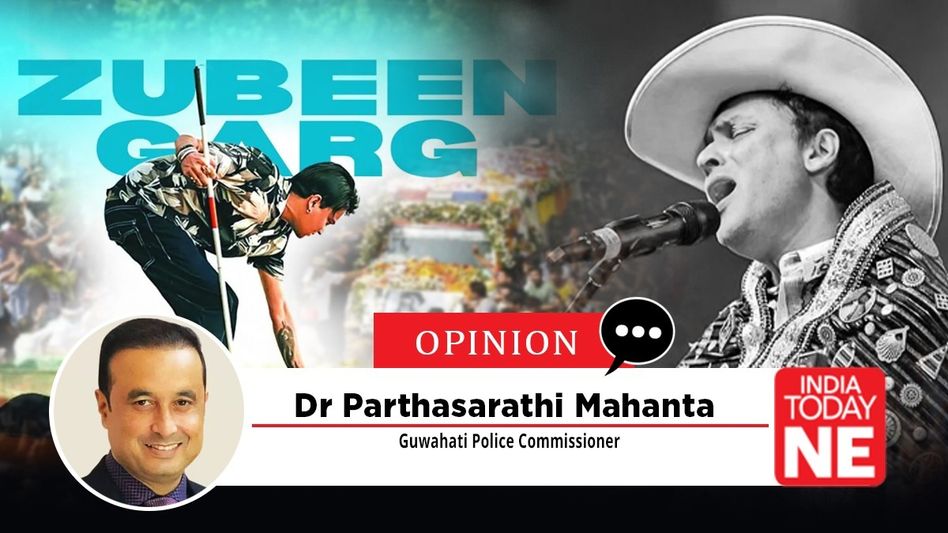Roi Roi Binale - When Tears Become a Language
'Roi Roi Binale' is not mere entertainment-it’s an emotional experience. It is political without being partisan, emotional without being sentimental, and poetic without being pretentious.

Some films appeal to the mind, others go straight to the heart. 'Roi Roi Binale' belongs to the latter. Directed with rare sensitivity and courage, it offers more than just a cinematic experience, it becomes a quiet reflection of our times. From its opening frame, the film draws you into its emotional rhythm, and by the end, it leaves you silent, heavy, yet strangely hopeful.
Zubeen Garg’s performance is the soul of 'Roi Roi Binale'. Known widely as a singer, composer, and cultural icon, he surprises here with a performance marked by restraint and emotional depth. There is no trace of showmanship, only honesty.
Through subtle gestures and expressive eyes, Zubeen conveys the inner turmoil of a man torn between idealism and disillusionment. His silences speak volumes, carrying the weight of a generation that has seen its dreams fade. It’s a mature performance-controlled, grounded, and profoundly human. Few actors can make empathy visible on screen, Zubeen does.
As expected from a film associated with Zubeen Garg, the music is one of its strongest elements. Each composition feels inseparable from the narrative, emerging naturally from the story’s emotional core.
The songs appear like pauses between storms-sometimes nostalgic, sometimes aching, sometimes comforting. They linger long after the film ends, echoing like distant memories. The background score enhances the mood without overwhelming it, allowing emotion to flow organically.
In 'Roi Roi Binale', music becomes more than an accompaniment, it’s a language of feeling. It gives voice to silence and turns pain into poetry.
Technically, 'Roi Roi Binale' stands out as one of the most accomplished Assamese films in recent years. The director treats every frame with care. Whether capturing the mist over a riverbank or the quiet solitude of a woman’s home, the visuals feel both real and poetic.
The cinematography presents Assam not merely as a backdrop but as a living character. The lighting is soft, the colours authentic, and the landscapes untouched by glamour. Editing is crisp and thoughtful, maintaining pace while letting emotions breathe. The production design feels natural, avoiding both romanticism and gloom.
Also Read: "Have always been a strong critic of Zubeen Garg, but this time...": Pabitra Margherita reacts over 'Roi Roi Binale'
The film’s strength lies in its courage to address complex and uncomfortable themes. It explores terrorism and unrest not through slogans, but through human stories. Violence is depicted not as spectacle, but as tragedy-an ideology consuming its own believers.
Equally compelling is the film’s portrayal of fatigue and frustration among ordinary people, youth disillusioned by broken promises, parents fearful for their children, and citizens weary of endless protest. The film quietly reminds us that a revolution without reflection can only lead to ruin.
The women in the film are strong, complex, and real. They are not shown as victims or symbols-they are individuals who fight, question, and endure. It simply shows women living their truth with quiet strength.
There’s also a gentle environmental message woven into the story. Nature is not just a backdrop-it’s a silent witness to human mistakes. The film reminds us that harming nature is the same as harming ourselves.
At its heart, the film speaks about relationships-between lovers, parents and children, humans and their homeland. It captures how modern life, marked by distraction and unrest, slowly erodes our capacity for empathy and connection.
In an age of polarised narratives, 'Roi Roi Binale' is remarkable for its balance. It refuses to take sides, instead choosing to observe, question, and reflect. The film’s power lies in this neutrality-it doesn’t dictate opinions but invites the audience to think and feel.
Its storytelling is brave and humane, grounded in faith that understanding is stronger than outrage.
Beyond its emotional resonance, 'Roi Roi Binale' marks an important step for Assamese cinema. It shows that regional films can speak to global issues while staying rooted in their cultural soil. Its sincerity, craftsmanship, and thematic depth place it among the most accomplished Assamese films of recent years.
When the credits roll, you don’t feel like getting up immediately. The music still plays in your head, and your thoughts turn inward-to your own choices, ideals, and silences.
That is perhaps the film’s greatest achievement, it doesn’t end when it ends.
'Roi Roi Binale' is not mere entertainment-it’s an emotional experience. It is political without being partisan, emotional without being sentimental, and poetic without being pretentious.
In a time when cinema often seeks attention, 'Roi Roi Binale' dares to seek understanding. It reminds us that sometimes, tears can be the most honest language of all.
Copyright©2025 Living Media India Limited. For reprint rights: Syndications Today









